CARES Act FAQ: Recovery Rebate
On March 27th, President Trump enacted the Coronavirus Aid, Relief, and Economic Security (CARES) Act. The historic $2.2 trillion stimulus bill includes an estimated $300 billion in direct payments to eligible American taxpayers.
Below, we address some of the common questions regarding this particular initiative. If you cannot find the answer to your question, we encourage you to visit the IRS website for the most up-to-date information.
Who is eligible for the recovery rebate?
To receive any portion of the recover rebate, you must fit all of the following three criteria:
- Be either a U.S. resident or citizen,
- Not be the dependent of another taxpayer, and
- Have a work-eligible Social Security Number.
Additionally, there is an income limit set for receiving the rebate:
- Single-filing taxpayers whose adjusted gross income (AGI) is under $75,000 are eligible to receive the whole amount; those whose AGI falls within $75,000 – $99,000 are eligible to receive a reduced rebate.
- For married filing jointly, those with AGI under $150,00 are eligible to receive the whole amount and those in the $150,000 – $198,000 range are eligible to receive a reduced amount.
- For those filing as head of household, the max AGI to be eligible to receive the full amount is $112,500 and the range for a partial rebate is $112,500 to $146,500.
How much is the recovery rebate?
The amount of your recovery rebate depends upon two factors: your adjusted gross income and how many children under the age of 17 you have. Taxpayers who qualify for the entire amount are eligible to receive $1,200 ($2,400 married filing jointly) plus $500 per child under 17. For the purposes of the recovery rebate, any child qualifies who is a qualifying child for the Child Tax Credit.
For taxpayers who earn above the $75,000/$150,000/$112,500 thresholds, the amount of the recovery rebate is reduced incrementally. For every $100 that the taxpayer’s AGI exceeds the phase-out threshold, their rebate is reduced by $5. In general, the point of total phase-out is $99,000 for single filers, $198,000 for married filing jointly, and $146,500 for heads of household. For taxpayers with children, the point of total payment phase-out shifts. For example, married couples with two children who have an AGI greater than $150,000 but less than $218,00 would receive a portion of the recovery rebate.
What do I have to do in order to receive the rebate for which I am eligible?
For most eligible recipients, no action needs to be taken. The IRS will use the information from taxpayers’ 2019 tax returns (if filed) or their 2018 return to determine eligibility.
How will I receive the payment?
For those who filed 2019 or 2018 tax returns online, the IRS will direct deposit the payment into the same banking account reflected in the return field.
What if the IRS doesn’t have my direct deposit information?
You can visit the IRS website for more information on to update banking or mailing information.
What if I didn’t file a tax return for either 2018 or 2019?
The best way to ensure that you receive the recovery rebate, if you are eligible, is to go ahead and file a 2019 tax return. Additionally, you can visit IRS website for further instruction. The CARES Act includes a mandate to the IRS to engage in a public campaign to alert taxpayers of their eligibility and offer instructions on how to receive the rebate if they have not filed tax returns for 2018 or 2019.
The CARES Act also instructs the IRS to use additional tools to locate and provide rebates to eligible individuals who normally do not file a tax return due to their low income (e.g., seniors whose only income is from Social Security and veterans whose only income is a veterans’ disability payment). The IRS can base a rebate on Form SSA-1099, Social Security Benefit Statement or Form RRB-1099. That said, individuals in this situation are encouraged to go ahead and file a 2019 return in order to receive their rebate more quickly.
Other individuals with little income and those on means-tested federal benefits (such as SSI) are also eligible for the rebate—even those with $0 of income. However, they must not be the dependent of another taxpayer and they must have a work-eligible social security number.
What if my 2019 income was above the threshold but I make significantly less in 2020?
The recovery rebate is structured as an advance on a tax credit that eligible taxpayers may claim on their 2020 tax return. As such, if your income in 2020 is lower than in 2019, you will earn any additional credit for which you are eligible when you file your 2020 tax return.
Will my rebate be reduced because I have past due debt (federal or state, including student loan payments) and/or owe back taxes?
No, those situations will not cause a reduction of your rebate. The CARES Act waives nearly all administrative offsets that would ordinarily reduce tax refunds. There is one administrative offset that will still be enforced—the offset for those who have past due child support payments that the states have reported to the Treasury Department.
Here are a couple scenarios to further illustrate how the recovery rebate works:
Scenario 1: Jane Doe, who files as an individual, had 2018 AGI of $63,500 (she has not yet filed her 2019 tax return so the IRS will look at her 2018 return). In this scenario, she is entitled to receive the full $1,200 check, regardless of her 2019 tax liability.
Scenario 2: John and Sally Smith, who file as a married couple with 2 children under the age of 17, had 2019 AGI of $125,000. In this scenario, they are entitled to receive a check for $3,400 as part of the individual stimulus payments.


